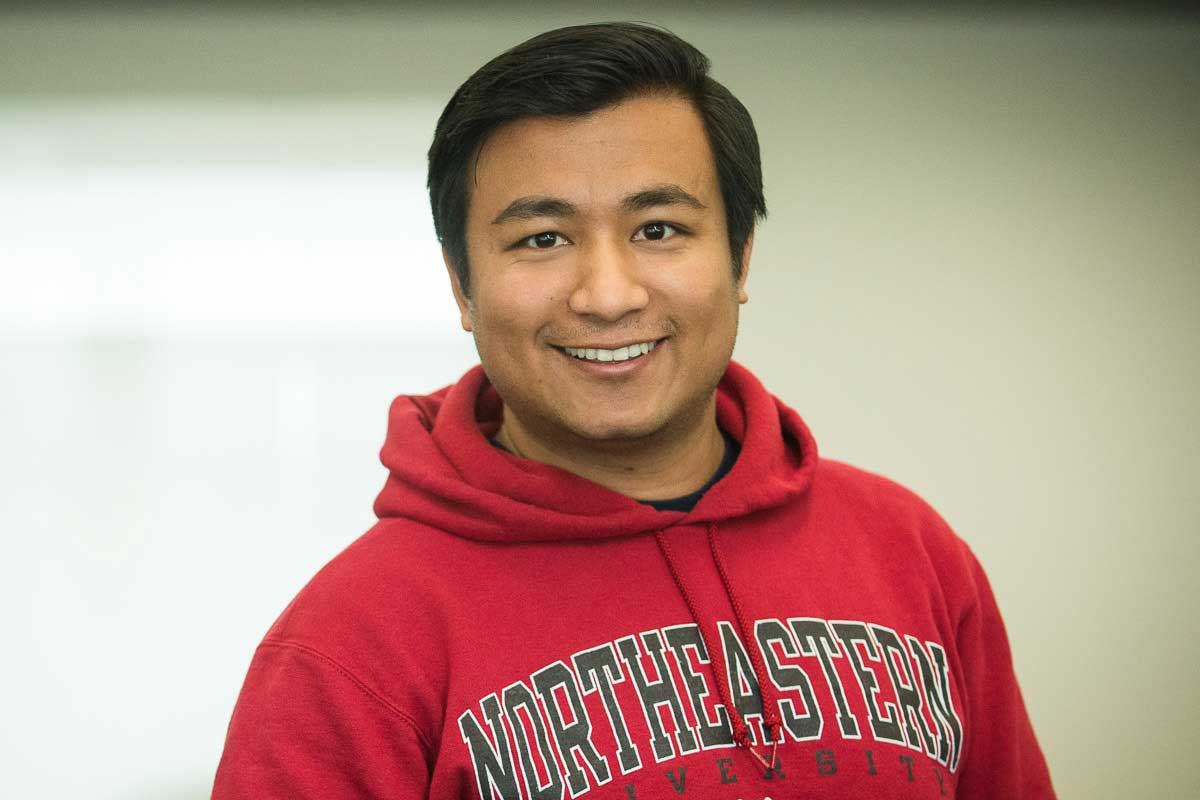Binod Thapa Chhetry
PhD Student

Education
- MS in Biomedical Engineering, University of Texas at Arlington
Biography
Binod Thapa Chhetry is a PhD student in the Personal Health Informatics program at Northeastern University’s Khoury College of Computer Sciences, advised by Professor Stephen Intille. Binod, a native of Butwal, Nepal, earned his master's degree in biomedical engineering from the University of Texas at Arlington.
At Northeastern, Binod’s research interests include human-centered computing, personal health informatics, and machine learning. Binod is in the mHealth (mobile health) research group. Binod is interested in building machine learning algorithms to detect long-term behaviors and habits, to promote physical activity in overweight individuals. Binod hopes to engage in lead research focused on personal health informatics.
What are the specifics of your graduate education (thus far)?
In the PhD program, I have been acquiring theoretical underpinnings and technical skill-set necessary for effective user interface design for real-time activity recognition through coursework and research in the mHealth lab.
What are your research interests?
My research interest was always motivated by its potential impact to everyday people. However, it has evolved throughout my academic and research career. My research interest lies in building machine learning algorithms for detecting long-term behaviors or habits for 'just-in-time' intervention for promoting physical activity to overweight and obese people. Robust real-time activity recognition requires developing user-in-the-loop activity recognition algorithms as well as interactive human computer interfaces. The intervention aspect of my research work will have ideas borrowed from behavior and social psychology.
What’s one problem you’d like to solve with your research/work?
Be able to create human computer interfaces that aid in machine teaching for real-time physical activity recognition.
What aspect of what you do is most interesting?
The idea that my research has to do with making machines and users efficiently communicate with each other while trying to fix each other really excites and motivates me.
What are your research or career goals, going forward?
My goal is to engage in lead research on personal health informatics building innovative, smart and helpful human-computer interfaces, ideally in academia, if not in industry.
Projects
-
Signaligner Pro
Lead PI: Stephen IntilleCo PIs: Aditya Ponnada, Seth Cooper, Qu Tang, Binod Thapa Chhetry